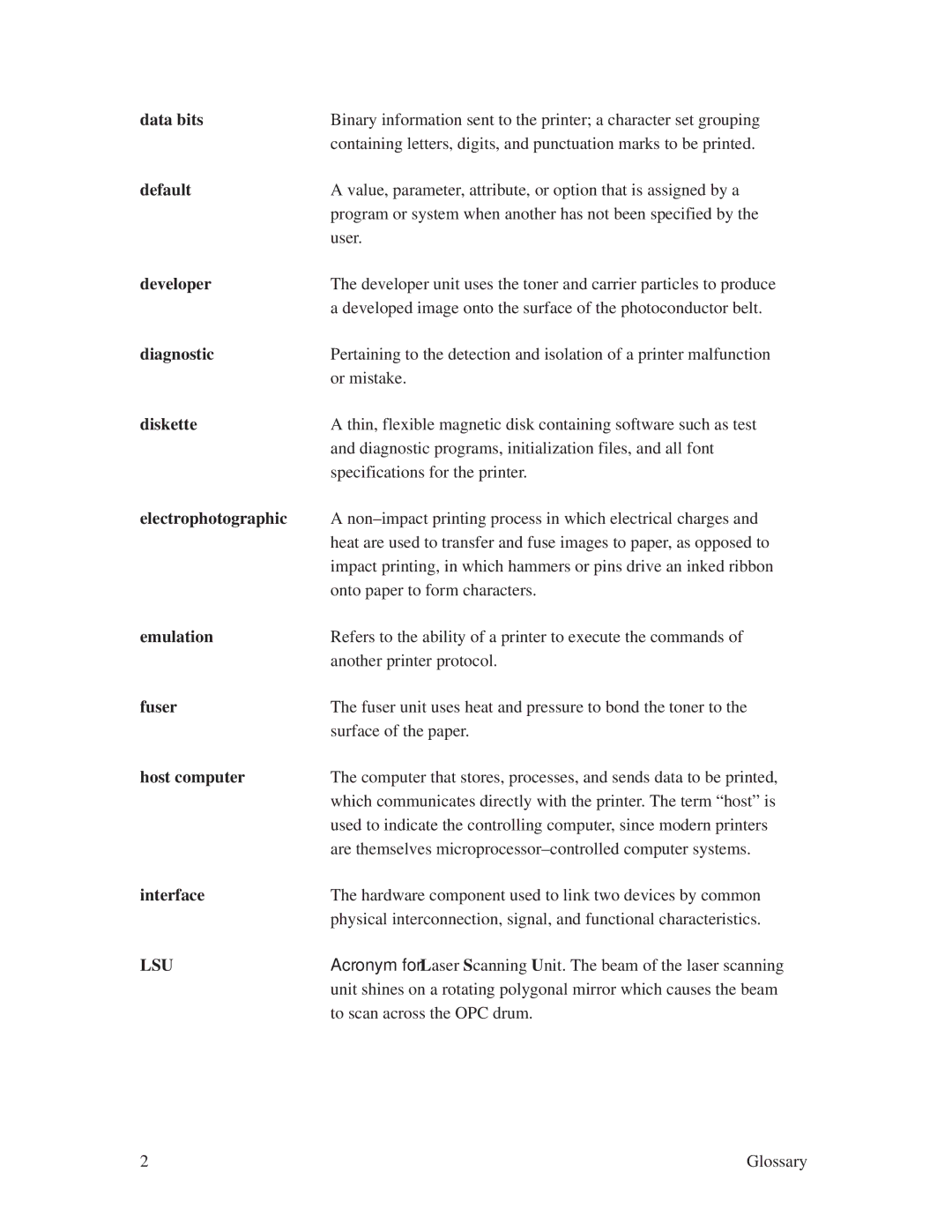data bits | Binary information sent to the printer; a character set grouping |
| containing letters, digits, and punctuation marks to be printed. |
default | A value, parameter, attribute, or option that is assigned by a |
| program or system when another has not been specified by the |
| user. |
developer | The developer unit uses the toner and carrier particles to produce |
| a developed image onto the surface of the photoconductor belt. |
diagnostic | Pertaining to the detection and isolation of a printer malfunction |
| or mistake. |
diskette | A thin, flexible magnetic disk containing software such as test |
| and diagnostic programs, initialization files, and all font |
| specifications for the printer. |
electrophotographic | A non±impact printing process in which electrical charges and |
| heat are used to transfer and fuse images to paper, as opposed to |
| impact printing, in which hammers or pins drive an inked ribbon |
| onto paper to form characters. |
emulation | Refers to the ability of a printer to execute the commands of |
| another printer protocol. |
fuser | The fuser unit uses heat and pressure to bond the toner to the |
| surface of the paper. |
host computer | The computer that stores, processes, and sends data to be printed, |
| which communicates directly with the printer. The term ªhostº is |
| used to indicate the controlling computer, since modern printers |
| are themselves microprocessor±controlled computer systems. |
interface | The hardware component used to link two devices by common |
| physical interconnection, signal, and functional characteristics. |
LSU | Acronym for Laser Scanning Unit. The beam of the laser scanning |
| unit shines on a rotating polygonal mirror which causes the beam |
| to scan across the OPC drum. |
2 | Glossary |
